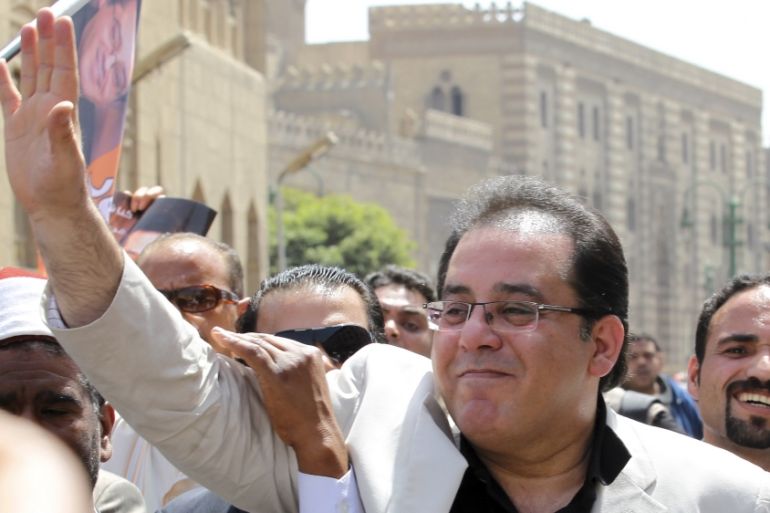Egypt court drops citizenship case against Ayman Nour
Veteran opposition leader and former presidential candidate was accused of incitement and spreading fake news.

An Egyptian court has dropped a case against prominent opposition leader Ayman Nour that sought to strip him of his citizenship.
The veteran opposition leader told Al Jazeera that the case against him was politically motivated and that it never had a legal basis.
“Legal action should be taken against the lawyers who bring forward these kinds of malicious cases and abuse the right of litigation… These cases are clearly malicious and have no legal or constitutional basis,” he said.
“This is perhaps the third time I’ve had such a case against me… It is a form of blackmail and a form of distortion.”
|
|
Nour, who ran against former President Hosni Mubarak in 2005, was accused of incitement against the state and its institutions through a private TV channel he operates from Turkey.
According to the lawsuit, the Al Sharq television channel, which is owned and managed by Nour, was used as a tool to spread false news and incite violence against the Egyptian state.
Nour told Al Jazeera in a separate interview, before the charges were dropped, that several cases had been brought against him “asking for the revocation of [his] citizenship”.
He added: “Egyptian citizenship obtained by a natural-born citizen cannot be revoked… These talks only reflect the state’s ignorance of the law.”
Nour, the leader of the Ghad al-Thawra (Tomorrow’s Revolution) party, had previously voiced fears about the Egyptian government going after a nongovernmental organisation (NGO) he had established.
“I have a charity centre called the ‘Nour Cultural Centre’ which I founded,” he said.
“I built this centre in the heart of Cairo with my own money in 1995.
“After 22 years, I found out last week that they want to demolish the centre because it has ‘Nour’ in its name, and a governor made statements claiming the name is ‘inappropriate’.
“So I sent out a tweet that infuriated them. I said ‘I’m happy to change the name of the centre, you can name it the Sisi centre or the Mohamed bin Zayed centre or the Mohamed bin Salman centre’.
“If one of those names pleases you, then I approve. Just leave the centre so people can benefit from it.”
Nour’s background
Nour first rose to prominence in 2005, when he ran in Egypt‘s first multi-candidate presidential election. He lost to Hosni Mubarak, obtaining 7.6 percent of the vote, in a ballot widely regarded as not free.
Months after the election, he was sentenced to five years in jail on forgery charges, in what many saw as a politically-motivated conviction. He was released in early 2009.
Nour received a full pardon by the former military government three years later, but, due to “legal reasons”, he failed to qualify to run for president during the 2012 election, according to local media.
A year later, when Abdel Fattah el-Sisi took power during a military coup, Nour left Egypt for Lebanon.
From there, he went to Turkey after learning that his life may be in danger, a move he says was prompted by a tip-off from Lebanese intelligence.
The opposition leader has been in Turkey since 2015, with an expired passport which has not been renewed.
“Until now, I do not have freedom of movement and freedom to return to my country,” Nour told Al Jazeera.
“I want to return to Egypt. I can’t because I don’t have a passport. I want to return and live in my country.”